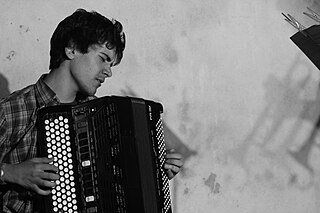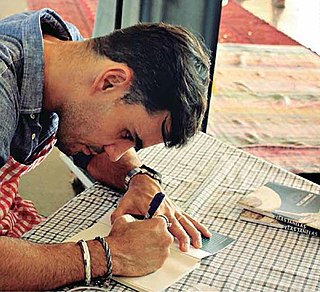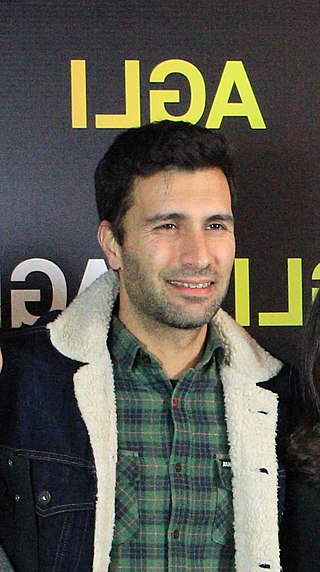| Film | Awards | Festivals | |
| Sara (2018) | Television - Fiction | Autores Awards, Portugal | Winner |
| Best Series or TV Movie | Portuguese Film Academy Sophia Awards | Winner |
| Best Series | Tropheus TV 7 Dias | Nominee |
| Best Actor |
| Best Actress |
| Best Supporting Actress |
| Saint George (São Jorge) (2016) | Venice Horizons Award - Best Actor | Venice Film Festival | Winner |
| Venice Horizons Award - Best Film | Nominee |
| Best Original Screenplay | Portuguese Film Academy Sophia Awards | Winner |
| Best Director |
| Best Film |
| Best Cinematography |
| Best Actor |
| Best Art Direction |
| Best Supporting Actor |
| Best Actress | Nominee |
| Best Original Music |
| Best Sound |
| Best Supporting Actress |
| Best Supporting Actor |
| Best Make-Up |
| Best Editing |
| Portuguese Nomination | Academy of Motion Picture Arts and Sciences (Oscars) | Nominee |
| Best Screenplay | Autores Awards, Portugal | Winner |
| Best Film |
| Best Actor |
| Best Movie | Golden Globes, Portugal | Winner |
| Best Actor |
| Best Supporting Actor | Nominee |
| Portuguese Nomination | Goya Awards | Nominee |
| Sydney Film Festival | |
| Chicago International Film Festival | |
| Best Director | International Film Festival & Awards Macau | Winner |
| Best Actor |
| Best Movie | Nominee |
| Mostra de Cinema de São Paulo | |
| Buenos Aires Film Festival | |
| Dubai International Film Festival | |
| Thessaloniki International Film Festival | |
| Performance in a Leading Role | Screen Actors GDA Foundation | Winner |
| Prix Sauvage - Best Feature Film | Festival of European Films in Paris | Nominee |
| Prague Febiofest | |
| Hong Kong European FF | |
| International Film Festival of Panama | |
| Barcelona International Auteur Film Festival | |
| Krakow Off Camera | |
| Film Festival Munich | |
| Tbilissi Film Festival | |
| Goa Film Festival | |
| Copenhagen CPH PIX | |
| Venice in Napoles Film Festival | |
| 20 Semaine du Cinema Lusophone | |
| Don Quijote Award | Coimbra Caminhos do Cinema Português | Winner |
| Best Actor |
| Best Supporting Actor |
| Top Ten of the Year (National Competition) | CinEuphoria Awards | Winner |
| Audience Award - Top Ten of the Year |
| Best Film (National Competition) |
| Best Actor |
| Best Screenplay (National Competition) | Nominee |
| Best Director (National Competition) |
| Best Trailer (National Competition) |
| Best Poster (National Competition) |
| Best Special Effects (National Competition) |
| Best Make-Up (National Competition) |
| Best Art Direction (National Competition) |
| Best Original Music (National Competition) |
| Best Cinematography (National Competition) |
| Best Editing (National Competition) |
| Best Ensemble (National Competition) |
| Best Supporting Actress (National Competition) |
| Best Supporting Actor (National Competition) |
| Jury Award - Best Film | Áquila Awards | Nominee |
| Jury Award - Best Director |
| Jury Award - Best Actor |
| Jury Award - Best Supporting Actor |
| Twenty One Twelve: The Day the World Didn’t End (2013) | Official Competition | Festival de Roma | |
| Official Competition | DocLisboa | |
| Louvre Museum | |
| Insert (2010 / 2011) (co-directed Filipa César) | | International Film Festival Rotterdam | |
| Best Director | IndieLisboa Festival Internacional de Cinema | Winner |
| Festival de Cinema Luso-Brasileiro | |
| Femina – International Women’s Film Festival | |
| Rencontres Audiovisuelles Lille International Short Film Festival | |
| Vila do Conde International Short Film Festival | |
| EUNIC Stockholm Kulturhuset | |
| BES Photo 2010 Award | BES Photo 2010 | Winner |
| Bienal de São Paulo | |
| Keep Going (2011) Documentary | | DocLisboa | |
| Traces of a Diary (2009 / 2010) | Jury International Award - Honorable Mention | Documenta Madrid | Winner |
| Goteborg Film Festival | |
| Experimental Film Competition | Traverse City Film Festival | |
| Bradford International Film Festival | |
| 5ª Mostra do Documentário Português Panorama | |
| Transilvania International Film Festival | |
| National Competition | IndieLisboa Festival Internacional de Cinema | |
| Art International Competition | Era New Horizons | |
| Rio de Janeiro International Festival | |
| Mountain Film Festival | |
| Kaliningrad European Union Film Festival | |
| 32nd Noorderlijk Film Festival | |
| Mostra Foto Cine Rio de Janeiro | |
| How to Draw a Perfect Circle (Como Desenhar um Círculo Perfeito) (2009 / 2010) | Andorinha Trophy - Best Music | CinePort – Portuguese Speaking Countries’ Film Festival | Winner |
| Andorinha Trophy - Best Actress | Nominee |
| Best Director (National Competition) | CinEuphoria Awards | Winner |
| Best Film | Golden Globes, Portugal | Nominee |
| Best Actor |
| IndieLisboa Festival Internacional de Cinema | |
| Kaliningrad European Union Film Festival | |
| Best Supporting Actress | Coimbra Caminhos do Cinema Português | Winner |
| Best Art Direction |
| Best Original Score |
| Best Film | Nominee |
| European Union Film Festival | |
| Special Jury Prize - Ensemble Acting | Rio de Janeiro International Film Festival | Winner |
| Shooting Star Award | Estoril Film Festival | Winner |
| Puchon International Film Festival | |
| Muestra de Cine Português | |
| A Longer Year (Um Ano Mais Longo) (2006 / 2007) | Official Competition | Venice Film Festival | |
| Lisbon Village Festival | |
| Toulouse Latin American Film Festival | |
| Alice (2005 / 2006) | Prix Regards Jeune - Best Feature Film | Cannes Film Festival | Winner |
| C.I.C.A.E. | Nominee |
| Golden Camera |
| Best Director | Mar del Plata Film Festival | Winner |
| FIPRESCI |
| ADF Cinematography Award |
| Best Film (International Competition) | Nominee |
| European Discovery – Fassbinder Award | European Film Awards | Nominee |
| Best Director | London Raindance Film Festival | Winner |
| Best Actor | Berlin International Film Festival Shooting stars | |
| European Union Film Festival, China | |
| Kaliningrad European Union Film Festival | |
| IFFI Goa | |
| Top Films of the Decade (National Competition) | CinEuphoria Awards | Winner |
| Best Latin-American Film | Ariel Awards, México | Nominee |
| Best New Director | Las Palmas Film Festival | Winner |
| Best Foreign Film | The Oscars | Nominee |
| Best movie | Golden Globes, Portugal | Winner |
| Best Actor |
| Best Actress | Nominee |
| Best Film | Coimbra Caminhos do Cinema Português | Winner |
| Best Director | CinePort – Portuguese Speaking Countries’ Film Festival | Winner |
| Best Editing |
| Best Cinematography |
| Best Soundtrack |
| Best Cinematography | Festival de Cinema Mediterrâneo | Winner |
| Candidato Português | Luís Buñuel Award | |
| Febiofest | |
| 1000.000 Retinas | |
| Jeonju International Film Festival | |
| Best Director | Festival de Cinema Luso Brasileiro | Winner |
| Best Actor |
| Official Competition | Lubliana Film Festival | |
| Official Competition | Taiwan Film Festival | |
| Danish Film Institute | |
| Taipei Golden Horse Film Festival | |
| Haifa International Film Festival | |
| Official Competition | Festival do Rio de Janeiro | |
| Official Competition | Provincetown Film Festival | |
| Official Competition | New York Tribeca Film Festival | |
| BFI – London Psychology Film Festival | |
| Havana Internacional Film Festival | |
| MK2 Paris Festival Mostra de Novo Cinema Português | |
| On My Way to School (No Caminho para a Escola) (1998) | Eixo Atlântico Award Best Film | Ourense Independent Film Festival | Winner |
| Best Film | Iberia Film Festival | Winner |
| Best Director |
| New Year’s Dive (Mergulho no Ano Novo) (1992) | Best Film (National Competition) | Vila do Conde International Short Film Festival | Winner |
| Tel-Aviv International Film Festival | |
| Valencia Film | |
| Festival Cinema Juve’95 | |
| Toulouse Film Festival | |









